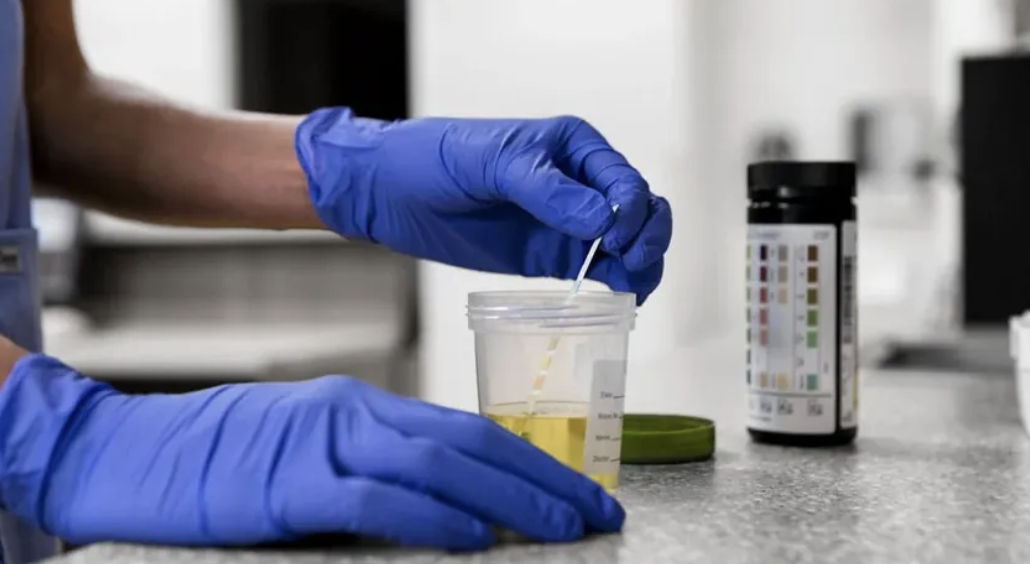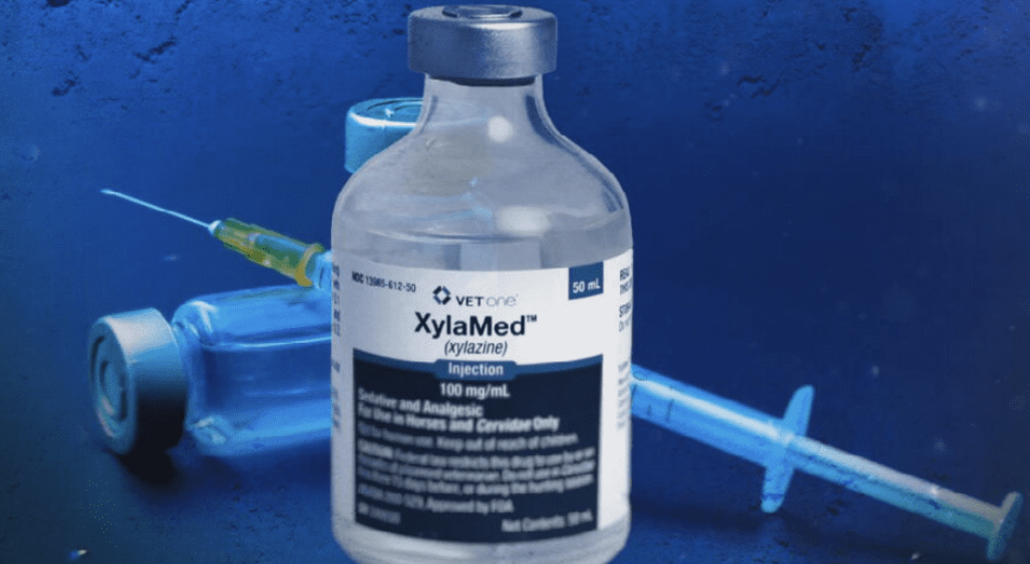Wet brain from alcohol, also known as Wernicke-Korsakoff syndrome, is a severe neurological disorder caused by chronic alcohol abuse and thiamine deficiency. It severely impacts memory, coordination, and overall brain function. Understanding the causes, symptoms, and treatments of this condition is vital for early detection and prevention.
Key Takeaways
- Wet brain, or Wernicke-Korsakoff syndrome, results from chronic alcohol misuse leading to thiamine deficiency, causing significant cognitive and physical impairments.
- Early diagnosis and intervention, primarily through thiamine supplementation, can reverse early-stage symptoms but untreated cases can lead to permanent damage and memory loss.
- Preventative measures include reducing alcohol consumption, maintaining a balanced diet, and ensuring adequate thiamine intake, especially for those at risk.
What is wet brain from alcohol?
Wet brain, scientifically known as Wernicke-Korsakoff syndrome, is a serious neurological disorder caused predominantly by chronic alcohol misuse and a significant deficiency in thiamine, also known as vitamin B1. This condition manifests in two stages: Wernicke’s encephalopathy and Korsakoff’s psychosis. Wernicke’s encephalopathy is the acute phase, presenting with symptoms like confusion, lack of coordination, and vision problems. If left untreated, it progresses into Korsakoff’s psychosis, characterized by severe memory impairments and behavioral changes.
The development of wet brain is not just a result of alcohol consumption but a combination of factors, including poor nutrition and the body’s impaired ability to absorb thiamine due to long-term alcohol abuse. The disorder predominantly affects the thalamus and hypothalamus regions of the brain, leading to significant cognitive and physical impairments.
Recognizing wet brain early and seeking timely intervention can prevent severe brain damage.
Is wet brain permanent or reversible?
The question of whether wet brain is permanent or reversible largely depends on the stage at which it is diagnosed and treated. Early-stage wet brain, or Wernicke’s encephalopathy, can be partially reversed with prompt thiamine supplementation. This stage is considered a short-term neurological disorder and can see significant improvement with immediate treatment, making Wernicke Korsakoff syndrome reversible.
However, if left untreated, the condition progresses to Korsakoff’s psychosis, a serious neurological disorder that often results in permanent brain damage, memory impairment, and anterograde amnesia. Early intervention can prevent the irreversible effects of this serious brain condition.
What causes wet brain?
The primary cause of wet brain is a chronic deficiency in thiamine, or vitamin B1, which is crucial for brain function. Chronic heavy drinking significantly hampers the body’s ability to absorb and store thiamine, leading to severe nutritional deficiencies. This deficiency causes damage to the brain’s thalamus and hypothalamus, resulting in the cognitive and physical symptoms associated with wet brain.
The disorder results directly from prolonged alcohol abuse, compounded by poor dietary habits, prolonged vomiting, and impaired nutrient absorption during a prolonged period in the gastrointestinal tract.
Role of thiamine deficiency
Thiamine, or thiamine vitamin B1, is essential for converting carbohydrates into energy that the brain needs to function. Chronic alcohol use can lead to thiamine deficiency due to poor nutrition and the malabsorption of nutrients. A significant number of individuals with alcohol use disorder suffer from low levels of thiamine, which exacerbates cognitive deficits and increases the risk of developing Wernicke-Korsakoff syndrome. Individuals who are thiamine deficient may experience immediate thiamine treatment that can alleviate symptoms of Wernicke encephalopathy and prevent its progression to the more severe Korsakoff syndrome. Additionally, thiamine deficiencies can further complicate these issues.
Alcohol impairs the absorption of thiamine in the intestines, further increasing the risk of deficiency. Thiamine deficiency leads to neurological impairments, affecting memory, coordination, and cognitive functions. The deficiency is often a result of the poor dietary intake associated with heavy drinking.
Individuals with chronic alcohol use need to maintain adequate thiamine levels to prevent Wernicke-Korsakoff syndrome.
Alcohol use disorder as a root cause
Long-term alcohol misuse significantly increases the risk of developing Wernicke-Korsakoff syndrome due to its impact on thiamine levels. Alcohol use disorder leads to nutritional deficiencies, including thiamine, which is critical for brain function. Individuals with alcohol use disorder may suffer from reduced thiamine absorption due to gastrointestinal issues linked to chronic drinking. This combination of factors makes chronic alcohol misuse the primary contributor to wet brain syndrome.
In addition to thiamine deficiency, alcohol interferes with the body’s ability to absorb and store essential nutrients, leading to further brain cell damage. Poor diet and eating disorders, which are often associated with alcohol misuse, exacerbate the risk of developing Wernicke-Korsakoff syndrome.
The presence of co-occurring conditions such as liver disease and anorexia nervosa further complicates the situation, making it imperative to address alcohol misuse connected to prevent the development of this serious brain condition.
What are the symptoms of wet brain?
The symptoms of wet brain can be divided into two stages: early-stage Wernicke’s encephalopathy and late-stage Korsakoff’s psychosis. Early-stage symptoms include confusion, poor coordination, and abnormal eye movements. Late-stage symptoms involve severe memory impairments, hallucinations, and behavioral changes.
Understanding these common symptoms is crucial for early detection and intervention, which can prevent the progression of this serious neurological disorder.

Early-stage (Wernicke’s encephalopathy) symptoms
Early-stage symptoms of Wernicke’s encephalopathy include:
- Confusion
- Poor coordination
- Abnormal eye movements, which can result in drooping eyelids and difficulty in tracking visually
- Memory issues
- Ataxia, or difficulty in controlling body movements
Early recognition of these symptoms can lead to prompt treatment and prevent progression to Korsakoff’s psychosis.
Late-stage (Korsakoff’s psychosis) symptoms
Late-stage symptoms of Korsakoff’s psychosis include irreversible memory loss, hallucinations, and confabulation, where individuals create false memories to fill gaps. These korsakoff psychosis symptoms result from severe brain damage caused by prolonged alcohol abuse and thiamine deficiency. Wernicke’s encephalopathy precedes Korsakoff’s syndrome in wet brain development, making early intervention critical to develop korsakoff’s psychosis and prevent these severe outcomes.
Behavioral changes are also common in the late stages of Korsakoff’s psychosis. Individuals may exhibit increased irritability, decreased emotional responses, and even aggression. These changes can significantly impact the quality of life and the ability to perform daily activities independently.
Recognizing the symptom progression from Wernicke’s encephalopathy to Korsakoff’s psychosis highlights the severity of wet brain and the need for timely treatment in Wernicke Korsakoff syndrome WKS.
How is wet brain diagnosed?
Diagnosing wet brain involves a combination of clinical evaluation, neuroimaging, and testing for thiamine levels. Neurologists typically look for symptoms of confusion, poor coordination, and memory issues as initial indicators.
Magnetic resonance imaging (MRI) or computed tomography (CT) scans are used to observe brain damage and assess the extent of the condition. Thiamine deficiency tests further confirm the diagnosis of Wernicke-Korsakoff syndrome, allowing for appropriate treatment to be administered promptly.

What is the treatment for wet brain?
The standard treatment for wet brain involves immediate thiamine supplementation, abstinence from alcohol, and long-term nutritional support. High-dose thiamine, administered either orally or through injections, is essential to address the deficiency and prevent further cognitive decline. Immediate intervention is crucial to halt the progression of the disorder and improve recovery outcomes.
Medications and supplements
Thiamine hydrochloride is the primary medication used to treat wet brain, administered in high doses to quickly restore deficient levels. This can be done through oral supplements or intramuscular or intravenous injections. Alongside thiamine, alcohol addiction medication like multivitamin therapy and magnesium are often prescribed to enhance thiamine absorption and effectiveness. Proper nutrition and a balanced diet play a crucial role in the recovery process, ensuring that the body receives all essential nutrients required for brain function.
Abstaining from alcohol during and after treatment is critical to improve outcomes and manage chronic symptoms. Additional vitamins and thiamine supplements may be given to support the body’s ability to absorb and utilize thiamine effectively. This comprehensive approach helps in alleviating the symptoms of Wernicke-Korsakoff syndrome treated and prevents the recurrence of the condition. Wernicke Korsakoff syndrome treatment is essential for long-term recovery.
Importance of early intervention
Early intervention is paramount for treating wet brain. Key points include:
- Thiamine injections, as the first-line treatment, can halt the progression and sometimes reverse existing damage.
- Immediate treatment significantly improves recovery outcomes.
- Early treatment reduces the risk of long-term damage.
Early recognition and prompt medical emergency attention substantially improve the prognosis of this serious brain condition.
Can wet brain be prevented?
Preventing wet brain involves reducing alcohol use, maintaining a balanced diet, and regular thiamine supplementation for individuals at risk. Abstaining from alcohol and ensuring adequate thiamine intake through diet or supplements can significantly reduce the risk of developing Wernicke Korsakoff syndrome preventable.
Awareness and education about the importance of proper nutrition and the dangers of chronic alcohol misuse are crucial in preventing this debilitating condition.
Wet brain vs. alcohol dementia: What’s the difference?
While both wet brain and alcohol-related dementia involve cognitive impairment, they have different underlying causes and manifestations. Wet brain results from thiamine deficiency due to chronic alcohol use, leading to specific symptoms like confusion, poor coordination, and severe memory loss. In contrast, alcoholic dementia stems from direct neurotoxicity caused by prolonged alcohol abuse, resulting in a broader range of cognitive impairments.
The treatment approaches also differ. Wet brain primarily requires thiamine supplementation to address the deficiency, whereas alcohol-related dementia may need a comprehensive cognitive rehabilitation strategy.
Understanding the differences between these conditions is essential for proper diagnosis and treatment, ensuring that individuals receive the appropriate care to manage their symptoms and improve their quality of life.
Long-term prognosis and quality of life
The long-term prognosis for individuals with wet brain largely depends on the stage at which the condition is diagnosed and treated. Without treatment, wet brain often leads to permanent cognitive impairment and a significant decline in quality of life. Early intervention can halt the progression of the disease and, in some cases, reverse some of the damage.
However, many survivors may still experience lasting memory impairment and emotional instability similar to patterns seen in what is a dry drunk, and require ongoing support to manage daily activities. A proactive approach, including continuous medical care and aligning with an alcohol recovery timeline, is crucial for improving life expectancy and functional ability in survivors.
Who is most at risk for developing wet brain?
Certain demographic, behavioral, and medical factors increase the risk of developing wet brain. These include:
- Chronic alcoholics
- Homeless individuals
- Malnourished patients
- Older adults
Chronic alcohol addiction drastically increases the risk of developing Wernicke-Korsakoff syndrome due to its impact on thiamine absorption and storage..
Other risk factors include poor diet, co-occurring eating disorders, and medical conditions like liver disease that affect nutrient absorption. Recognizing these risk factors is essential for early intervention and prevention of this serious brain condition.
Real-world cases and statistics
Real-world data highlights the prevalence and impact of wet brain. According to the National Institutes of Health (NIH), wet brain affects approximately 1–2% of the general population but is often underdiagnosed. Studies show that early intervention and proper treatment significantly improve recovery outcomes, yet many cases remain untreated due to a lack of awareness and timely diagnosis of wet brain symptoms.
These statistics underscore the importance of education and proactive healthcare strategies to manage and prevent wet brain effectively.
Bottom Line: Wet Brain from Alcohol
Understanding wet brain is crucial for recognizing its early signs, seeking timely treatment, and implementing preventive measures. This serious brain condition, caused by chronic alcohol misuse and thiamine deficiency, can lead to severe cognitive impairments and a decline in quality of life if left untreated. Early intervention, proper nutrition, and abstinence from alcohol are key to managing and preventing wet brain. By staying informed and proactive, individuals can protect their brain health and improve their overall well-being.
FAQs about wet brain
What is wet brain from alcohol?
Wet brain, also known as Wernicke-Korsakoff syndrome, is a serious neurological condition resulting from chronic alcohol abuse and a deficiency in thiamine. It is important to recognize the symptoms early to prevent further cognitive decline.
Is wet brain permanent or reversible?
Wet brain can be reversible in its early stages with timely thiamine supplementation, but advanced stages typically result in permanent brain damage.
How is wet brain diagnosed?
Wet brain is diagnosed through a clinical evaluation, often supported by neuroimaging techniques like MRI or CT scans, and testing for thiamine levels. These methods help confirm the condition and guide appropriate treatment.
Can wet brain be prevented?
Yes, wet brain can be prevented by reducing alcohol consumption, maintaining a balanced diet, and ensuring sufficient thiamine intake. Prioritizing these measures can significantly lower the risk.
Can you drink again after recovering from wet brain?
It is crucial to abstain from alcohol after recovering from wet brain to avoid further neurological damage and complications. Prioritizing your health is essential for ongoing recovery.
















